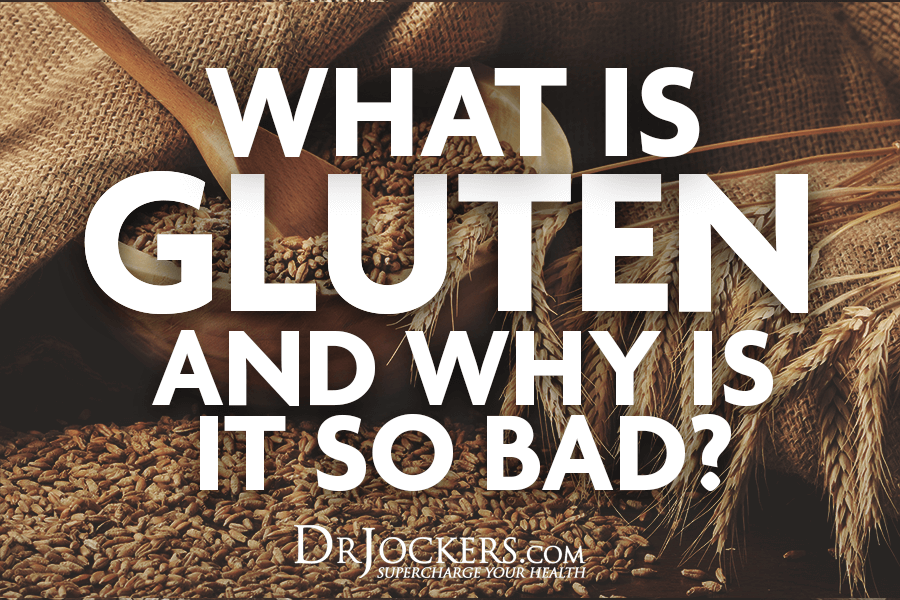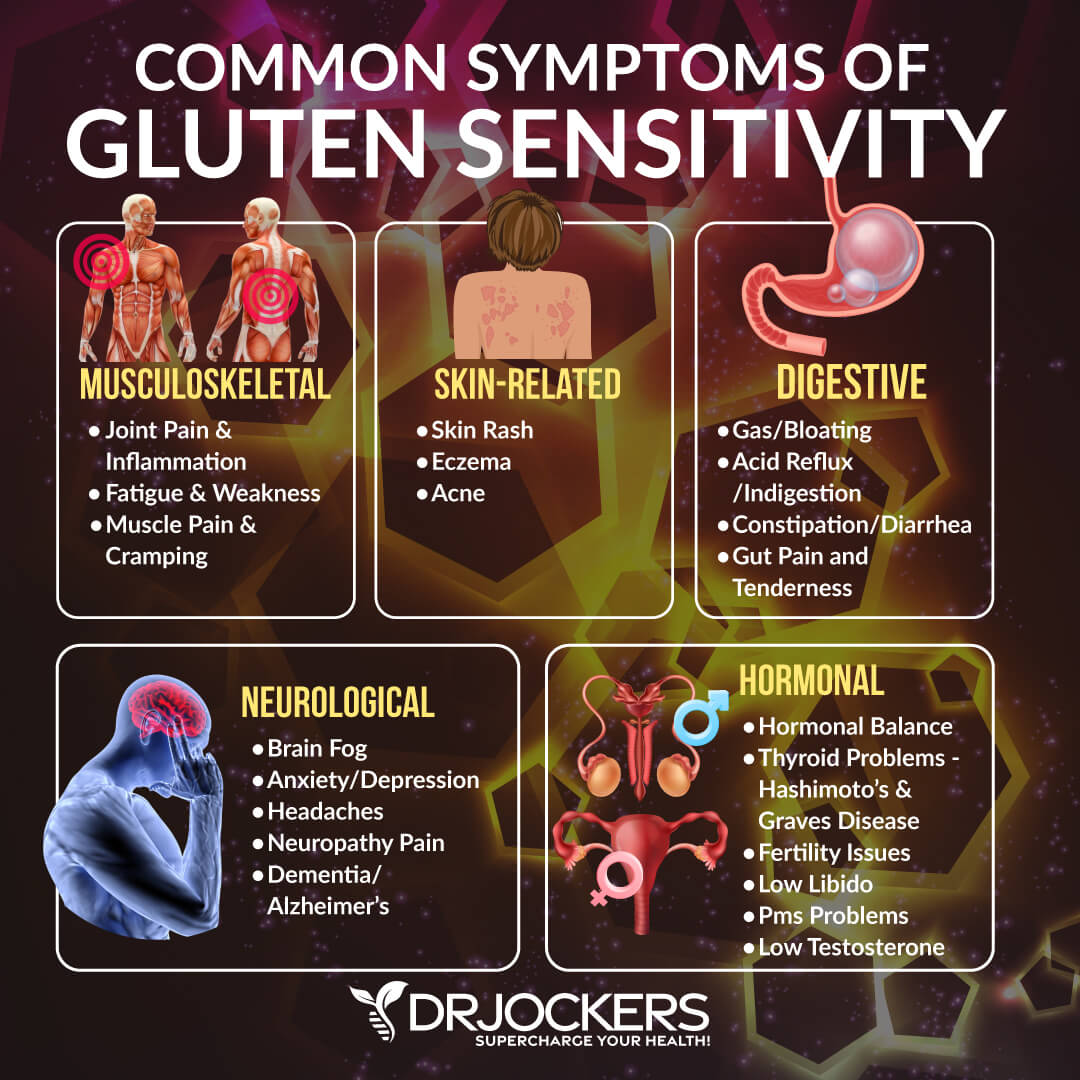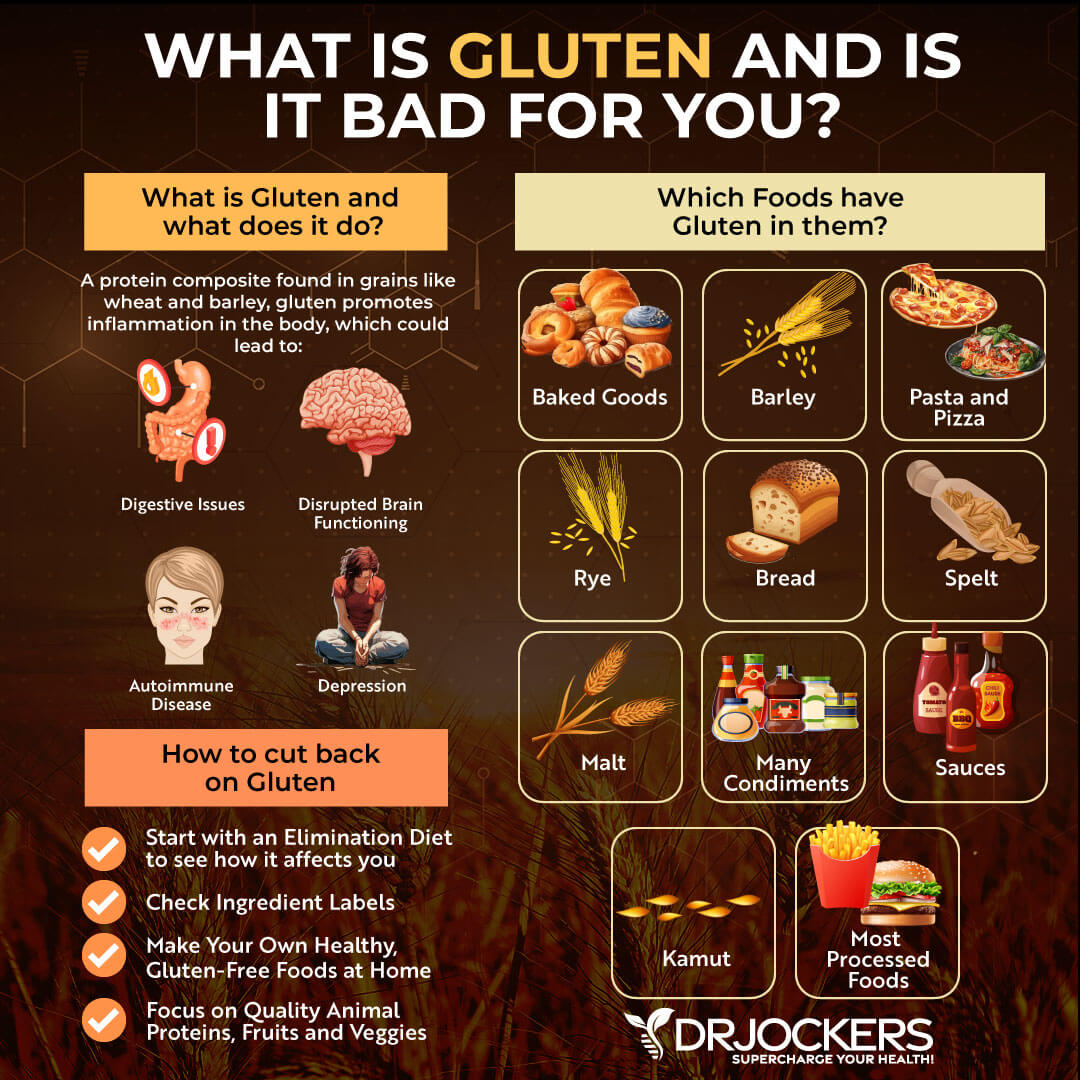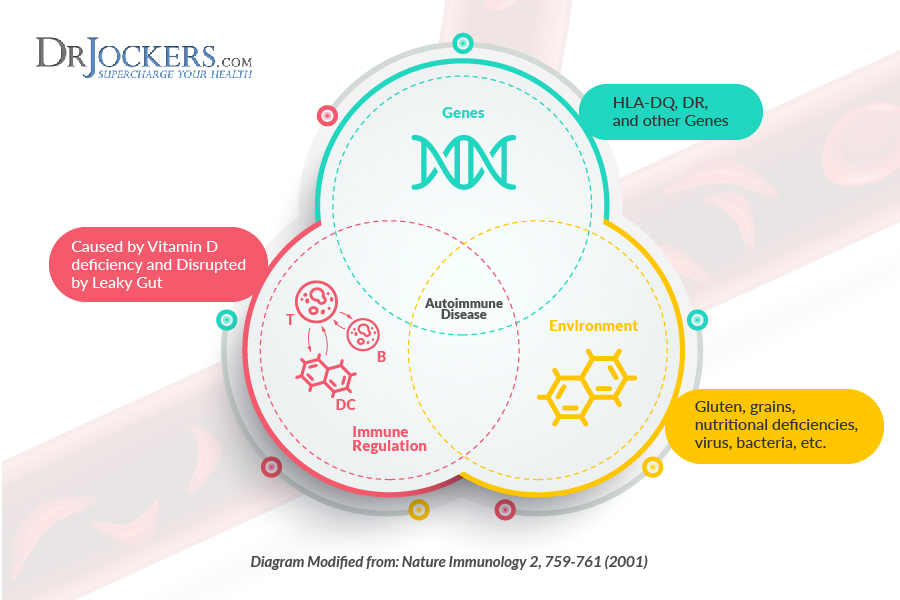
What is Gluten and Why is it so Bad?
Gluten is the common protein found in wheat, barley, & rye. There are more and more people that are having health problems associated with gluten consumption. In this article, I will dive deep into the research to answer the question, what is gluten and why is it so bad?
Gluten is a sticky, storage protein that is challenging for the digestive tract because it binds to the small intestinal wall where it can cause digestive and immune system disorders. Gluten sensitivity is an epidemic that is a major contributing factor with inflammatory and autoimmune diseases (1, 2).
Gluten intolerance is highly associated with inflammatory disorders of all kinds (3). It is also a contributing factor in many autoimmune diseases such as celiac disease, rheumatoid arthritis, type I diabetes, Hashimoto’s thyroiditis, autoimmune cardiomyopathy, lymphoma, and dermatitis herpetiformis (skin disease) among others (4, 5). It is also linked as a contributing factor in asthma, allergies, & eczema (6, 7).

Why is Gluten a Modern-Day Epidemic?
People have been eating wheat, barley, & rye for many years. Why is gluten intolerance a modern-day epidemic? Wheat is called the staff of life in the bible, why is it now a hazardous food?
Humans for many centuries have consumed gluten, but mostly in a sprouted form. In fact, it is well-known that the Hebrew people of the bible sprouted their grains and made bread. The sprouting process activates key enzymes that help digest and metabolize gluten.

Our Genetic Code and Gluten Intolerance:
Our human genetic code plays a role in the gluten intolerance. The natural DNA blueprint carries a specific genetic code for our immune system. These genes are called Human Leukocyte Antigen (HLA) complex. Gluten intolerance has been noted with HLA-DQ2 & HLA-DQ8 (8,9).
HLA-DQ2 is most common in individuals of Western European decent. This is primarily Ireland, England, & Spain. High levels are also seen in North and West Africa. HLA-DQ8 is seen in mostly in Central America and the American Hispanic population.
Genetic Predispositions to Gluten:
These genetic predispositions are dormant until excessive environmental stress activates them. Environmental stresses can come in the form of infections by opportunistic organisms, toxicity, malnutrition, physical nerve stress, lack of sleep, & high emotional challenges.
Throughout the history of mankind, babies have relied on the nutritional benefits of mothers’ breast milk for the early part of their life. With the industrialization of dairy and grains this natural process has been reduced. Many babies are weaned off of mother’s milk after just a few months. Other babies are started on these industrialized gluten containing formulas right away.

Breast Feeding and Gluten Intolerances:
The lack of mothers’ milk is an especially challenging stress for the baby’s immature immunity. For one, breast milk naturally passes on immunoglobins that help prevent against intestinal infections. Breast-fed infants have significantly less gut infections than non-breast fed infants of similar age (10,11).
Breast milk also contains a large amount of the immunoglobin IgA which the infant depends on. This critical antibody helps protect the infant from infection and reduces the entry of antigenic food fragments from disturbing the immune system. This significantly reduces the incidence of food allergy. Breast feeding an infant for six months or longer appears to significantly reduce the incidence of both infection and food allergy formation.
Children who had gluten containing formulas within their first 4 months of life have a 5 time greater risk of celiac disease and 6 time greater risk of type I diabetes than children who had their first gluten experience after 4 months.

Tips to Reduce risk of Gluten Intolerance:
1) Breastfeed newborns for at least the first 6 months of life and ideally the first year if possible.
2) Optimize vitamin D3 levels between 60-100 mg/ml
3) Optimize gut flora with high-quality fermented foods and probiotic supplements
4) Keep blood sugar under control with regular exercise and a low carbohydrate diet that is loaded with phytonutrient rich veggies, good fats and anti-inflammatory herbs.
5) There is no need to ever introduce gluten to a child. All the essential nutrients found within whole grains are also found in fruits, vegetables, herbs and clean meats.
6) When introducing gluten (if you decide too) it is best to use sprouted forms.
Inflammation Crushing Ebundle
The Inflammation Crushing Ebundle is designed to help you improve your brain, liver, immune system and discover the healing strategies, foods and recipes to burn fat, reduce inflammation and Thrive in Life!
As a doctor of natural medicine, I have spent the past 20 years studying the best healing strategies and worked with hundreds of coaching clients, helping them overcome chronic health conditions and optimize their overall health.
In our Inflammation Crushing Ebundle, I have put together my very best strategies to reduce inflammation and optimize your healing potential. Take a look at what you will get inside these valuable guides below!






Great article and very informative. Thanks for posting.
Excellent article Doc! Loving the new website also!
I always thought the same ? Why now We grew up on bread and Now it’s bad
Yes this is key to know Frank!
Thank you, Dr. Jockers for the well researched post! I agree that Modern day factors like formula fed to babies, high sugar exposure, fake vitamins, could be contributors to Gluten intolerance.
In indian culture, wheat is part of every meal and it is not sprouted yet has been tolerated very well for generations. We grind wheat to make flour and make tortillas from flour. That is part of every meal with a vegetable. Family in India still has wheat everyday and are fine. But here is USA, people of Indian origin are getting intolerant to wheat/gluten. Can you shed light as why do u think this is happening?
Thank you for your question Niti!
It appears that the prevalence of Celiac disease is on the rise in Indian populations as well but there could be several reasons for why it may be higher in the US. The use of GMO wheat and the heavy use of glyphosate (pesticide) may be two big ones. Glyphosate can be especially destructive to the gut which only amplifies the effects of gluten. Indian cultures also tend to use many herbs and spices that may be providing some form of protection for the gut. These are just some speculations of mine as its hard to say exactly!
Blessings!
There is also the issue of how wheat has been hybridized so has changed considerably over the last 50 or so years. There are sources of organic heritage wheat–like what was grown back in our grandparents’ or great-grandparents’ day. Unfortunately, this is what happens when mankind tries to improve on what God made.
Thank you sir . this your article very helpful to our Tamil culture. because our Tamil people are consume wheat flour lots.
Dr Jockers, 2 important points are left out of the Gluten article. 1.) is the glyphosate sprayed on wheat and GMO modified grains which disrupted the gut biome. 2.) The EBV which feeds on gluten and burrows into organs such as thyroid tissue, liver tissue etc as the EBV moves through its stages of advancement. Scientists and doctors forget to address this very issue or even look for it. It’s very common today. Viral titers can be tested to see the viral load, the viral activity, and if currently recurring.
Good points Janet, thanks for sharing!